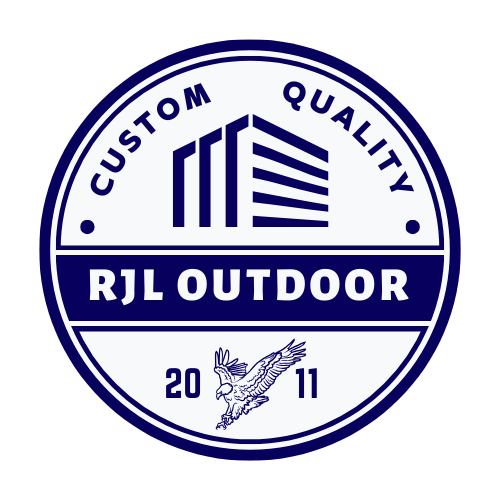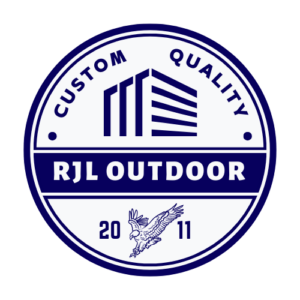Howdy!
Commercial Fencing DFW: Your Ultimate Guide to Securing Your Food Business
Running a food business in the bustling DFW metroplex is no easy feat. From adhering to stringent health codes to satisfying diverse palates, the challenges are plenty. Amidst this whirlwind of responsibilities, ensuring the security and safety of your establishment might seem like just another box to tick. But here’s the truth: commercial fencing is more than just a regulatory requirement; it’s a strategic investment that safeguards your assets, enhances your brand image, and offers peace of mind.
Why Commercial Fencing Matters for DFW Food Businesses
Imagine this: you’ve poured your heart and soul into crafting the perfect menu, your kitchen gleams with stainless steel efficiency, and your staff is prepped to deliver top-notch service. But then, a stray animal finds its way into your outdoor dining area, or worse, vandalism mars your property overnight. Suddenly, all your hard work feels jeopardized.
This is where commercial-grade fencing steps in as your silent guardian. It acts as a deterrent against:
- Intruders and Theft: A sturdy fence sends a clear message that your property is off-limits, protecting your valuable equipment and inventory.
- Vandalism and Property Damage: Graffiti, broken windows, and other acts of vandalism can be costly and time-consuming to repair. A fence acts as a physical barrier, discouraging such incidents.
- Unwanted Animal Encounters: Stray animals, rodents, and pests can pose serious health hazards for food businesses. A secure fence helps maintain a hygienic environment by keeping them at bay.
- Liability Issues: Accidents happen, but a well-maintained fence can help prevent unauthorized access to potentially hazardous areas, minimizing your liability in case of mishaps.
Beyond security, the right fencing solution can also:
- Elevate Your Brand Image: A well-designed fence enhances your curb appeal, creating a positive first impression on potential customers and reflecting the professionalism of your establishment.
- Define Boundaries and Improve Traffic Flow: Clearly demarcated boundaries guide customers, delivery personnel, and staff, ensuring smooth operations and enhancing overall efficiency.
- Provide Privacy and Enhance Outdoor Dining Experiences: For restaurants with outdoor seating, fencing can create a sense of intimacy and seclusion, improving the dining ambiance for your patrons.
Navigating the DFW Commercial Fencing Landscape
The DFW area boasts a diverse range of commercial fencing options, each with its own set of pros and cons. Making the right choice for your food business requires careful consideration of your specific needs, budget, and aesthetic preferences.
Let’s break down the most popular choices:
1. Chain-Link Fencing: The Workhorse of Security
-
Pros:
- Affordability: Chain-link fencing is often the most budget-friendly option, making it a popular choice for cost-conscious businesses.
- Durability: Constructed from galvanized steel, chain-link fences are built to withstand the test of time and the elements.
- Low Maintenance: These fences require minimal upkeep, saving you time and money in the long run.
- Versatility: Chain-link fences can be customized with different heights, gauges, and coatings to suit various security needs.
-
Cons:
- Aesthetics: Chain-link fences are often perceived as utilitarian and may not be the most visually appealing option, especially for businesses aiming for a specific aesthetic.
- Privacy: The open design of chain-link fences offers little to no privacy, which might not be ideal for businesses with outdoor seating areas or those requiring a greater sense of seclusion.
2. Wrought Iron Fencing: The Epitome of Elegance and Strength
-
Pros:
- Sophistication: Wrought iron fences exude a timeless elegance and sophistication, adding a touch of class to any property.
- Durability: Known for its strength and resilience, wrought iron can withstand harsh weather conditions and resist damage.
- Security: The sturdy construction and intricate designs of wrought iron fences act as a strong deterrent against intruders.
- Customization: From ornate details to custom colors and finishes, wrought iron fences offer a high degree of personalization.
-
Cons:
- Cost: Wrought iron fencing is a significant investment compared to other options, which might be a limiting factor for some businesses.
- Maintenance: While durable, wrought iron requires regular maintenance, including repainting, to prevent rust and corrosion.
3. Vinyl Fencing: The Low-Maintenance Champion
-
Pros:
- Durability: Vinyl fencing is resistant to fading, warping, rotting, and insect damage, making it a long-lasting option.
- Low Maintenance: Vinyl fences require minimal upkeep, typically just occasional washing to remove dirt and debris.
- Variety of Styles and Colors: Vinyl fencing is available in a wide range of styles, colors, and textures to complement any architectural design.
- Cost-Effective: While not as inexpensive as chain-link, vinyl fencing offers a good balance of affordability and longevity.
-
Cons:
- Susceptibility to Damage: While durable, vinyl fencing can be susceptible to damage from impacts, which might be a concern in high-traffic areas.
- Limited Security: Compared to chain-link or wrought iron, vinyl fencing might not offer the same level of security, especially in its standard configurations.
4. Aluminum Fencing: The Lightweight Yet Strong Contender
-
Pros:
- Lightweight: Aluminum fencing is easy to install and maneuver, making it a good choice for DIY projects or expedited installations.
- Corrosion Resistance: Aluminum naturally resists rust and corrosion, ensuring longevity even in humid climates.
- Low Maintenance: Similar to vinyl, aluminum fencing requires minimal upkeep.
- Aesthetically Pleasing: Aluminum fences come in various styles, mimicking the look of wrought iron without the hefty price tag.
-
Cons:
- Strength: Aluminum is not as strong as steel and might be susceptible to bending or damage under high impact.
- Cost: Aluminum fencing is typically more expensive than chain-link but less so than wrought iron.
5. Wood Fencing: The Classic Choice with Rustic Charm
-
Pros:
- Aesthetics: Wood fences offer a timeless, natural beauty that can enhance the curb appeal of any property.
- Versatility: Wood fencing can be customized with various designs, stains, and finishes to achieve a desired look.
- Cost-Effective: Depending on the type of wood used, wood fencing can be a relatively affordable option.
-
Cons:
- Maintenance: Wood fences require regular maintenance, including staining, sealing, and repairs, to prevent rot, insect damage, and weathering.
- Durability: Wood is susceptible to moisture damage, insect infestations, and rot, potentially shortening its lifespan compared to other materials.
Factors to Consider When Choosing Your Commercial Fence
Selecting the right commercial fencing for your DFW food business involves carefully evaluating your specific needs and priorities. Here are key factors to consider:
1. Budget: Establish a realistic budget for your fencing project, keeping in mind that material costs, installation fees, and potential maintenance expenses can vary significantly.
2. Security Level: Determine the level of security required for your property. If you’re located in a high-crime area or store valuable equipment, a more robust fencing option like chain-link or wrought iron might be necessary.
3. Aesthetics: Consider the overall aesthetic of your business and choose a fencing style that complements your brand image and the surrounding architecture.
4. Functionality: Think about the intended purpose of your fence. Are you primarily seeking to deter intruders, define boundaries, enhance privacy, or a combination of these factors?
5. Maintenance: Factor in the long-term maintenance requirements of different fencing materials. Some materials, like vinyl and aluminum, require minimal upkeep, while others, like wood and wrought iron, demand more attention.
6. Local Regulations: Familiarize yourself with local zoning ordinances and building codes that might dictate fence height, materials, and placement.
Beyond the Fence: Enhancing Security with Additional Measures
While a commercial-grade fence serves as a formidable first line of defense, consider bolstering your security with these additional measures:
1. Security Cameras: Install strategically placed security cameras to monitor your property, deter criminal activity, and provide valuable evidence in case of an incident.
2. Alarm Systems: An alarm system can alert you and authorities in real-time if a breach occurs, allowing for swift action.
3. Access Control Systems: Limit access to restricted areas with keycard readers, intercom systems, or other access control measures to prevent unauthorized entry.
4. Adequate Lighting: Well-lit areas deter criminal activity and create a safer environment for employees and customers, especially during evening hours.
5. Landscaping: Strategically planted thorny bushes or shrubs can act as a natural deterrent, discouraging intruders from attempting to scale your fence.
6. Signage: Prominently display "No Trespassing" signs to clearly communicate that your property is private and unauthorized access is prohibited.
Partnering with a Trusted DFW Commercial Fencing Contractor
Installing a commercial fence is a significant investment, and entrusting the job to experienced professionals ensures a seamless and successful outcome. When choosing a DFW commercial fencing contractor, consider the following:
1. Experience and Expertise: Look for a contractor with a proven track record of successfully completing commercial fencing projects, especially for businesses in the food industry.
2. Licensing and Insurance: Ensure the contractor holds the necessary licenses and insurance coverage to protect you from liability in case of accidents or damage.
3. Reputation and Reviews: Research the contractor’s reputation by reading online reviews, testimonials, and seeking recommendations from other businesses in your network.
4. Communication and Transparency: Choose a contractor who communicates clearly, provides detailed estimates, and keeps you informed throughout the entire process.
5. Warranty and Guarantees: Inquire about warranties on materials and workmanship to protect your investment in case of defects or issues.
Commercial Fencing DFW: A Wise Investment for Your Food Business
In the competitive landscape of the DFW food industry, every advantage counts. A strategically chosen and expertly installed commercial fence provides more than just physical security; it offers peace of mind, enhances your brand image, and protects your valuable assets.
By partnering with a reputable DFW commercial fencing contractor and carefully considering your specific needs, you can make a wise investment that will benefit your food business for years to come.
RJL





